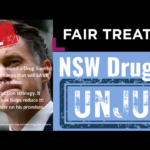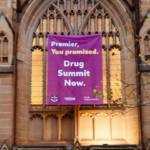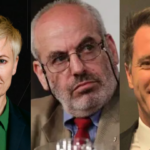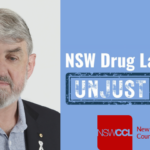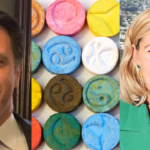NSW Drug Summit Agenda: Decriminalisation, Drug Detection Dogs and Deemed Supply
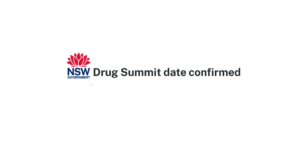
The Minns government has finally announced it will be holding its preelection promised NSW Drug Summit, which will comprise of a four day forum with two regional dates set for October, along with two dates of hearings to be held in Sydney over 4 and 5 December.
NSW premier Chris Minns had delayed the highly sought drug summit after the Daily Telegraph put questions to him, regarding the rollout of drug decriminalisation in the ACT, which was about to occur last year, and the Labor leader asserted that he had “no mandate” to progress such reform.
“The Drug Summit was an election commitment,” the state government’s 12 July statement reads.
“It will bring together medical experts, police, people with lived and living experience, drug user organisations, families, and other stakeholders to provide a range of perspectives and build consensus on the way NSW deals with drug use and harms.”
The running of such a thorough multiday meeting brings an expectation for progressive drug law reform, as it has precedent.
The Carr government’s 1999 NSW Drug Summit brought serious change, including the trialling of the now permanent medically supervised injecting room in Kings Cross.
And as the NSW government had been dragging its feet on holding the summit since last August, much of the credit for getting it over the line to the point of announced dates, rather than seeing it further pushed down the track, must been given to the campaign run by the Uniting Church.
Drug decriminalisation
So, what sort of drug law reforms are likely to be on the agenda at the 2024 NSW Drug Summit?
Well, the changes sought are focused on people who use drugs, not cultivators, manufacturers or suppliers, because it’s long been understood that illicit drug use should be treated as a health issue and not a crime.
Uniting’s Fair Treatment campaign has been calling for drug decriminalisation in NSW and the ACT since 2018, and so have the over 70 other organisations partnering with them, which include the NSW Bar Association, Community Legal Centres NSW and the Aboriginal Legal Service NSW/ACT.
Currently, in NSW, a person found with a quantity of an illegal drug deemed for personal use can be charged with drug possession, which is an offence under section 10 of the Drug Misuse and Trafficking Act 1985 (NSW) (DMT Act) that carries a maximum penalty of 2 years imprisonment and/or a fine of $2,200.
While section 12 of the DMT Act makes it a crime to self-administer an illicit substance, which too carries a maximum of 2 years imprisonment and/or a fine of $2,200.
Decriminalisation would see the revoking of the criminal sanctions relating to these laws, so that possession or use would no longer be a crime. Instead, people found in possession would rather be subject to a civil penalty, a small fine, or have the option of attending a counselling session.
In February, the Minns government rolled out a system supposed to meet decrim part way. Called the Early Drug Diversion Initiative, it permits police officers to impose a diversionary civil penalty, either a fine or a counselling session, on two occasions prior to a third instance requiring a charge.
The issue with this program is that it is a discretionary measure, so officers choose whether to apply it. And the early figures obtained in parliament show that officers have only diverted 7.5 percent of those eligible for it. So, at present police officers are currently opting to apply criminal penalties.
Deemed supply
Another key organisation calling for the summit to be held is the NSW Council of Civil Liberties, and it’s former president Nicholas Cowdery, who is also the former NSW Director of Public Prosecutions and a long-term drug law reformist, has called on the deemed supply law to be revoked in the past.
Section 29 of the DMT Act contains the law of deemed supply, which means that if a person has an amount of drugs upon them for personal use, but it exceeds the amount considered to be for personal use to the point that it is classed as a traffickable amount they’re then charged with supply.
Schedule 1 of the DMT Act lists over 200 illicit substances. And it indicates the quantities for each that then influence the penalties relating to the amount in possession. These are a small amount, a traffickable quantity, an indictable quantity and a commercial or large commercial quantity.
So, how this can translate is a person with one MDMA pill will be charged with drug possession, however an individual with three pills, can be charged with supply, regardless of whether they were all for the individual’s own use.
The offence of supply is contained under section 25 of the DMT Act, and it carries different penalties depending on the quantity of a certain illicit substance.
Yet, in the case of a traffickable amount of MDMA that an individual has for personal use, the penalty that then applies is 2 years and/or an $11,000 fine if tried in the NSW Local Court, but if tried in the NSW District Court, 15 years gaol time and/or a fine of $220,000 can apply.
Drug testing, the hounds, and getting your kit off
There are a number of other key harm reduction reforms that are likely to appear on the 2024 NSW Drug Summit agenda and while one of them is likely a given, the other two are surely going to ruffle the feathers of any current NSW Police Force representatives involved.
The first major reform is pill testing. This evidence-based drug harm intervention sees a sample of an illicit substance tested in order to advise the owner of its content and any risks they’d be taking if ingesting the drug. Pill testing or drug checking has been operating in Europe since the mid-1990s.
Pill testing has currently been legal and operating in the ACT since mid-2022. The practice commenced in Queensland this year. And Victoria will begin the trialling of pill testing this summer.
So, while in NSW, there has long been heavy resistance to this practice, which actually results in less drugs being taken as people often bin them once they find out their content, it has gotten to the point that it would be foolhardy if this state government did not follow suit and start saving lives.
And another more contentious issue will be suggestions to remove the warrantless use of drug detection dogs in public settings, especially at music festivals.
The use of sniffer dogs in public does have negative health impacts, but it is also a social issue, as after an indication from a dog, police find nothing on two-third to three-quarters of occasions, and when an illegal substance is found, it’s most often a small amount of cannabis.
And the use of drug dogs has also become more prevalent at festivals over the last decade, and at these events, the presence of police with dogs has been shown to result in young people swallowing all their drugs at once to avoid detection, and this has, on occasion, led to overdose and death.
The last issue that it is questionable will make it on to the agenda is the use of strip searches, as over the last ten years, drug dog indications that lead to a pat down search that turns up nothing have increasingly been accompanied by a strip search that two-thirds of the time locates nothing as well.
Yet, NSW police officers often aren’t aware of correct protocols when conducting these invasive procedures, and even when they do follow the stipulations set out in the police powers legislation, being ordered to strip naked in front of two armed strangers can be, and often is, traumatising.
Redfern Legal Centre senior solicitor Samantha Lee has pointed to the fact that strip searching youths “is an abuse of power and we know the practice can cause long-term trauma.”
And the RLC’s police accountability solicitor has suggested that “the government should implement an immediate pause on the strip-searching of children and place strip-searches on the drug summit agenda”.


